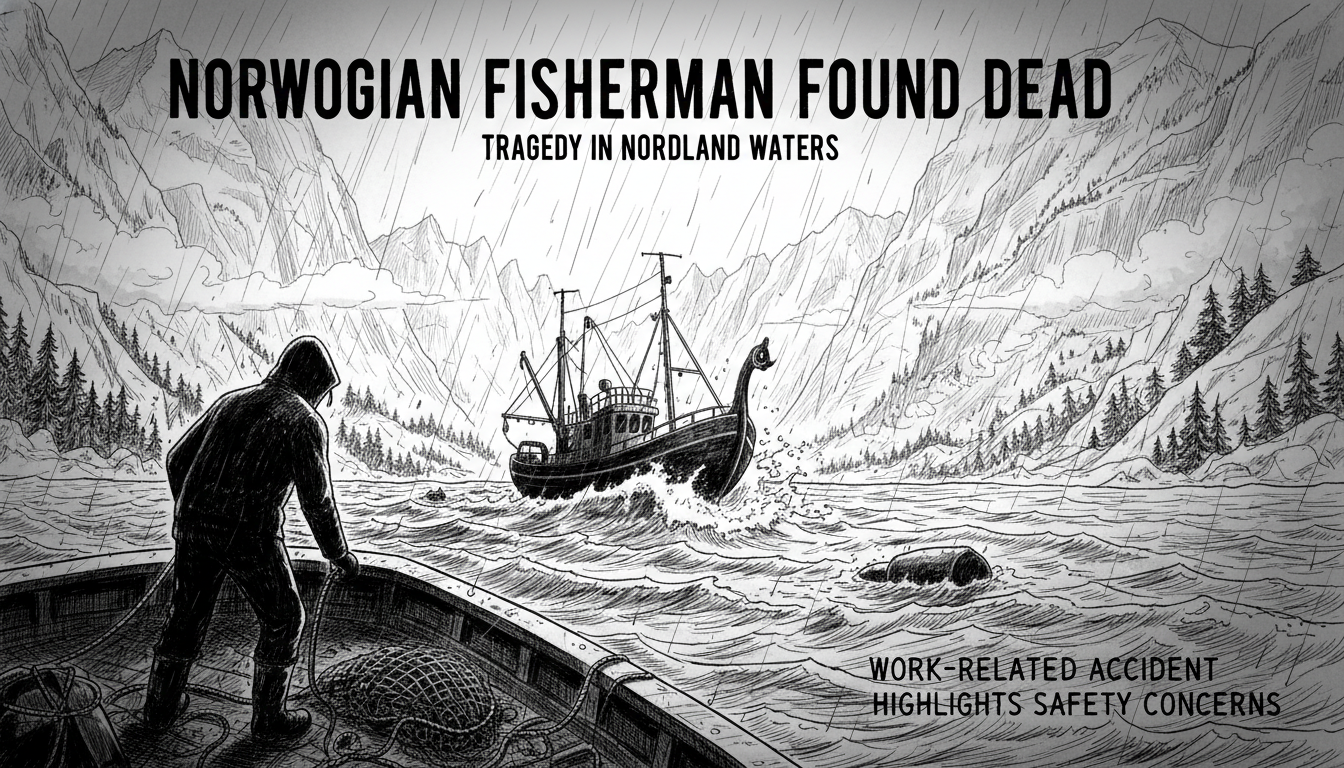A fisherman has been found dead aboard his vessel in Norway's Nordland region. Police investigators confirm the death appears to be work-related. The man had been fishing alone at sea when concerned acquaintances discovered him after he failed to return on schedule.
Police spokesperson Tommy Bech stated that next of kin have been notified about the tragic incident. Investigators conducted preliminary examinations aboard the fishing boat. They determined the circumstances point toward an occupational accident rather than suspicious circumstances.
This tragedy highlights the inherent dangers of Norway's fishing industry, which remains one of the country's most hazardous professions despite modern safety measures. Norwegian coastal communities depend heavily on fishing, yet face constant risks from harsh weather conditions, equipment failures, and the physical demands of working at sea.
Nordland county, where this incident occurred, stretches along Norway's northwestern coast and contains some of the nation's most important fishing grounds. The region's economy has relied on fisheries for generations, with many families continuing traditional fishing practices.
Norwegian fishing safety has improved dramatically in recent decades, but isolated incidents still occur, particularly among smaller operations where fishermen work alone. The country's maritime authorities have implemented strict safety protocols, yet the unpredictable nature of sea work creates persistent challenges.
This latest fatality raises questions about solo fishing operations and whether additional safety measures could prevent similar tragedies. Norwegian fishing communities typically maintain strong informal monitoring systems, where fellow fishermen check on each other's wellbeing, but these networks cannot eliminate all risks.
The incident will likely prompt review by Norway's Maritime Directorate and fishing safety organizations. They typically investigate such events to determine if new safety recommendations are needed. Previous fishing accidents have led to improved emergency communication equipment requirements and mandatory safety training updates.
International readers should understand that Norway maintains one of the world's most comprehensive welfare systems, providing strong support for families affected by workplace tragedies. The country's fishing industry operates under rigorous safety standards that generally exceed international requirements, yet the fundamental dangers of marine work remain.
What happens next? Police will complete their investigation while fishing industry representatives and safety authorities examine whether this case reveals any systemic safety gaps that need addressing. The local community will mourn the loss while continuing their vital work feeding the nation.

